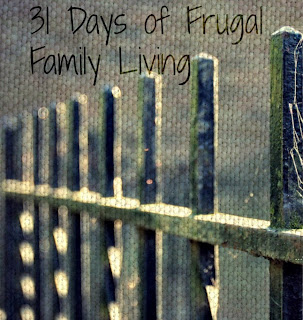Wednesday, October 2, 2013
LIving Well On Less: Zero-based budgeting
Welcome back! Today we're going to talk about zero-based budgeting. If you've never heard of this concept (and you think like me), you probably are wondering if this is some kind of cruel joke based on bank balances, or wondering how on earth you are supposed to survive without spending money.
Luckily, it's a lot simpler than it sounds. It's also really practical, because when you write a zero-based budget, you're taking all of your income and directing it somewhere. You're either spending it, saving it, or paying off debt with it, but you know where it's going. When you're done with your budget, you have zero - a zero-based budget.
That's it. Pretty simple. Until it comes to the execution, that is - the part where you're spending the money and sticking to your lists and resisting ALL the impulse spending. Yeah, that part. That's the hard part. For today, we're going to take the first step and talk about writing a budget that works for you and your family.
So how do you budget for your family? This depends on a few things - your income, your family's needs, and the way money is spent. First, let me say that I'm no financial expert. I do have a family and a budget, however, and I'm happy to share my experience in hopes that it might help someone else on the path to frugal family life.
In terms of income, it's helpful to know precisely how much you will make in a given time period. If your paycheck comes monthly, a monthly budget might be easiest to start. If your paycheck comes every other week or twice monthly, this gets a little trickier. In our family, we have two sources of income, one paycheck which comes every other week and one paycheck which comes twice a month. To make things less complicated, we have a monthly budget. For some things, like groceries, we break down the amount by week and adjust the budget as needed (and as possible). If you're not sure which will work best for your family, try monthly for one month and biweekly for the next two weeks, or vice versa.
If your income is unpredictable, it can be even more difficult to budget. One recommendation I've heard (though haven't used) is to create a savings account and build it up over time so that monthly expenses can come out of there, rather than from each month's check. In this way, you can work up towards living off the previous month's check and putting the current one into the account for next month.
Once you've figured out your budgeting interval or decided which one you'd like to try, start by outlining your basic expenses. These will probably look something like rent, utilities, food, insurance, giving, and transportation. You'll have other expenses too, though they may be irregular; such as insurance and taxes. Try adding up the total amount spent in a year on these things and dividing by your budgeting interval to figure the amount you should set aside. Don't forget to set some money aside for savings each month.
The biggest key to making a zero-based budget is accounting for all of your income. You can add amounts for eating out, fun spending money, or travel. If something is important to your family, try to find money for it. This might mean cutting expenses in another area (we'll talk more about that tomorrow) but it will ultimately help budgeting work better for you and your family. A budget should make your money work for you!
This is a great article about zero-based budgeting: http://www.daveramsey.com/blog/zero-based-budget-what-why
Living Well On Less: 31 Days of Frugal Family Living
I’m pretty excited about this. If you’ve never heard of the #31days challenge before, bloggers take a topic and write about it every day for the month of October. Ok, so it’s enough of a challenge to write about anything every day - but infinitely trickier to write about the same thing every day - for a whole month.
I picked frugal living because it’s very near and dear to my heart right at this moment. My husband is starting a new job this next week, and as a family, we’ll be taking a significant pay cut. To make ends meet, we’ve had to be a lot more intentional about how we spend our money. It doesn’t mean we don’t spend money, and it doesn’t mean we don’t get to spend it on things we enjoy, like coffee. It just means we have to be intentional. We plan. We try our best to execute our plan. We come back and figure out what worked and what didn’t, and make a new plan.
Living frugally doesn’t have to mean constant deprivation. It means spending the necessary money on the absolute essentials, and then planning the rest of your spending on those things that are essential to you and your family. What’s essential to one person or family might be totally unimportant to another family. The key is to prioritize your spending and try to save money wherever you can, and that’s what we’re going to talk about this month.
This will be the home base for all things “Living Well on Less: 31 Days of Frugal Family Living”. As new posts go up, a link to each post will appear below.
Subscribe to:
Comments (Atom)


